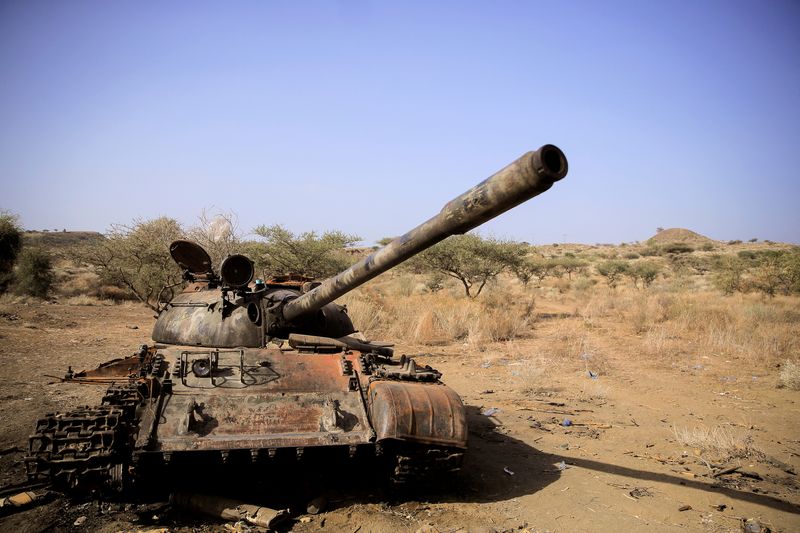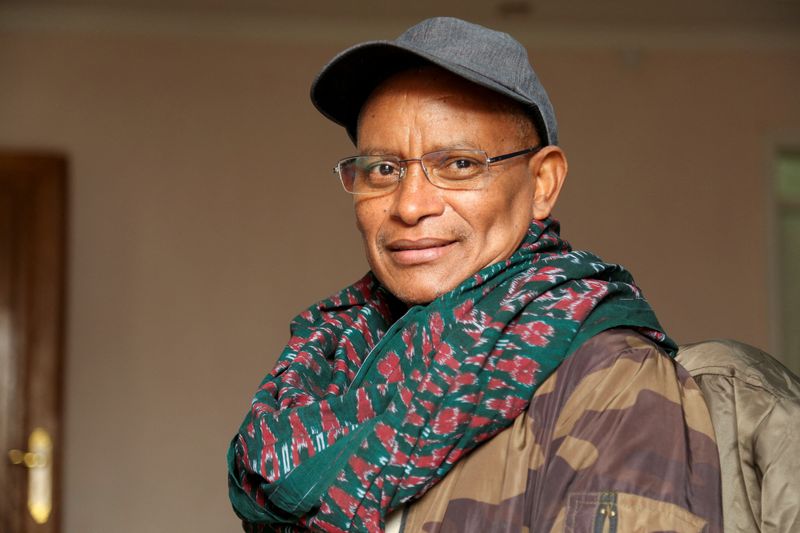NAIROBI (Reuters) - Fighting flared for a second day in northern Ethiopia, residents said on Thursday, an outbreak of violence that has shattered hopes for fledgling peace talks between the government and forces from the Tigray region.
“We are frequently hearing the sound of heavy weapons, more than the previous days,” a farmer in Amhara's Kobo area who did not wish to be named told Reuters. “More troops including those from Ethiopian National Defence Force, local militias and Fanos (volunteer militia) are heading to the front.”
A second resident confirmed his account.
Leul Mesfin, medical director of Dessie Hospital, the largest medical facility in the vicinity of the fighting, said that as of Thursday the facility had not received any casualties from the fighting, which is in Amhara region just to the south of Tigray.
Reuters was unable to reach the nearest hospital on the Tigrayan side as the region has been cut off from phone communications for more than a year.
It was not clear if the troops moving through Kobo were going to offensive or defensive positions, or who started the fighting.
Both sides blamed each other for breaking the four-month-old ceasefire between Prime Minister Abiy Ahmed's government and the Tigray People's Liberation Front (TPLF), the party that controls Tigray.
Ethiopian government spokesman Legesse Tulu, military spokesman Colonel Getnet Adane, the Amhara regional spokesman Gizachew Muluneh and the prime minister's spokeswoman Billene Seyoum did not respond to requests for comment on the fresh fighting. TPLF spokesman Getachew Reda also did not respond to a request for comment.
The ceasefire had allowed badly needed humanitarian aid to reach Tigray, where more than 90% of people need food aid.
On Wednesday, the United Nations said Tigrayan forces had seized 12 fuel tankers from a warehouse in Mekelle. The government has heavily restricted fuel supplies from entering Tigray, and the tankers were supposed to have been used for distributing humanitarian aid.
On Thursday, the TPLF issued a statement saying the fuel had only been lent to the United Nations and they had needed to reclaim it.
The war in Tigray started in November 2020 after Tigrayan forces seized control of military bases in their region, saying they believed an attack by the military was imminent after the region held regional elections in defiance of a government order to delay them because of the COVID-19 pandemic.

The government has denied it was planning to attack Tigray, whose leaders dominated the government until Abiy swept to power in 2018.
The conflict has already displaced millions of people, pushed parts of Tigray into famine and killed thousands of civilians.
